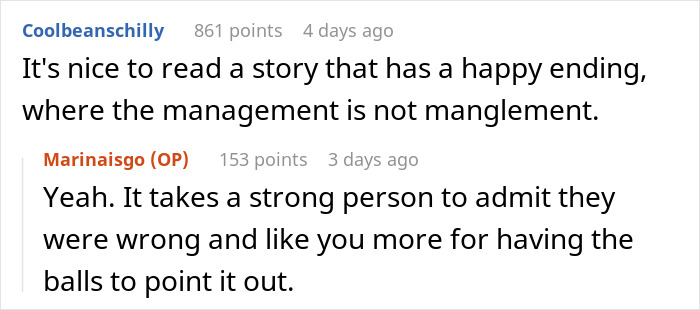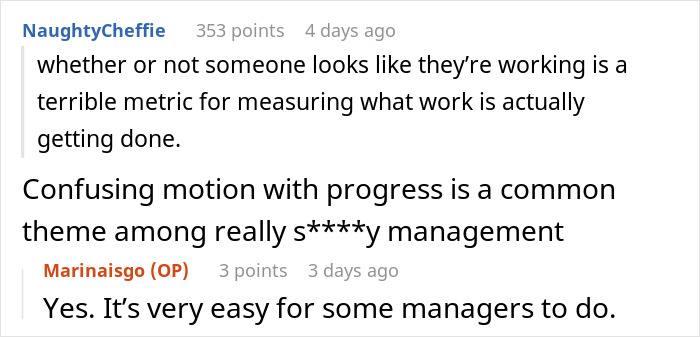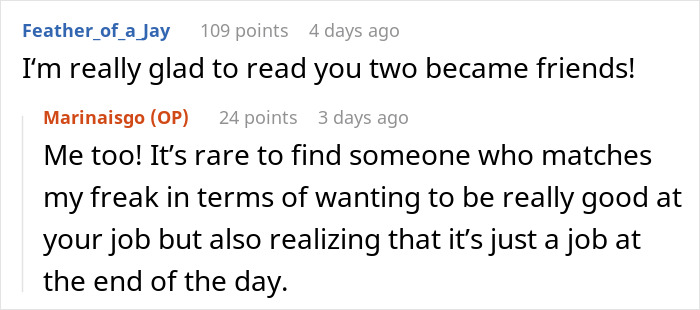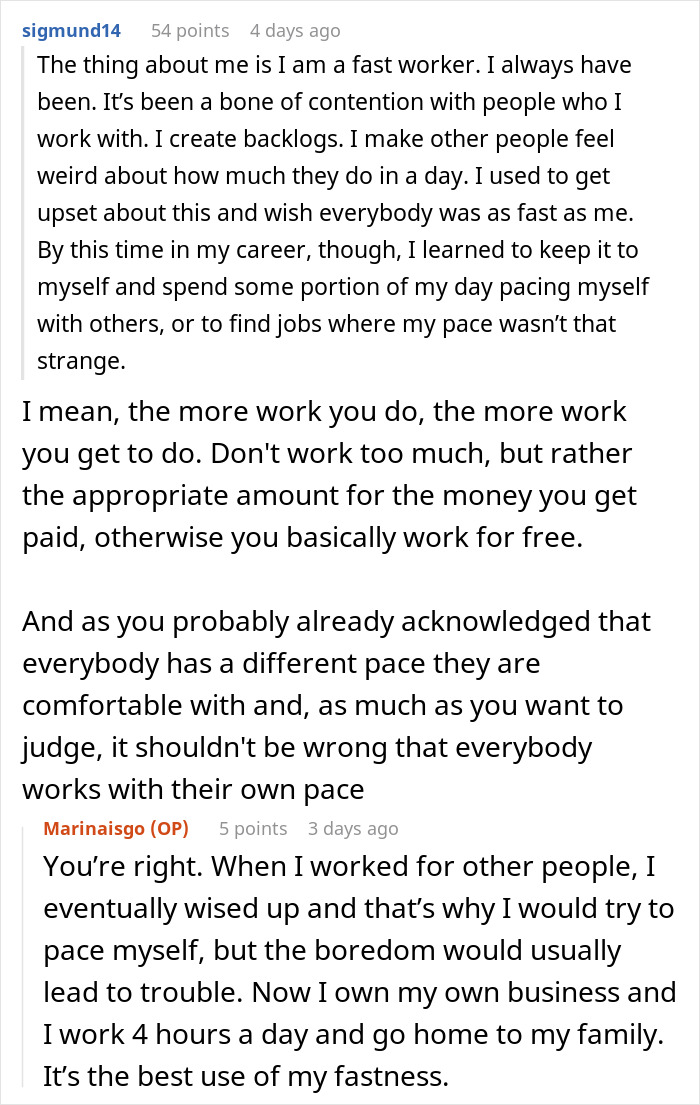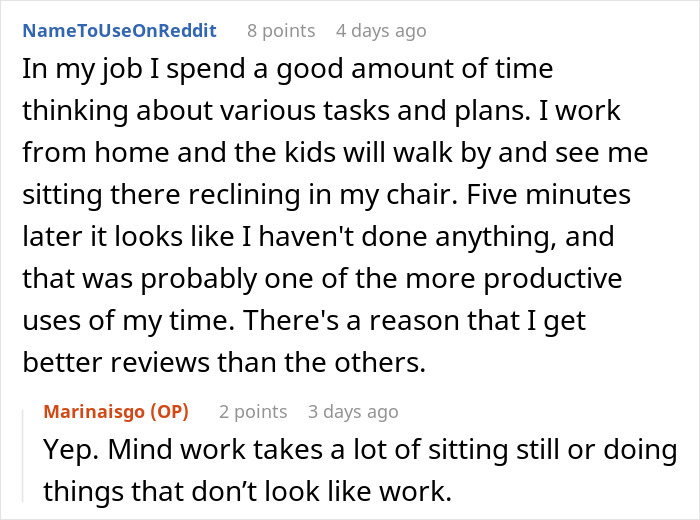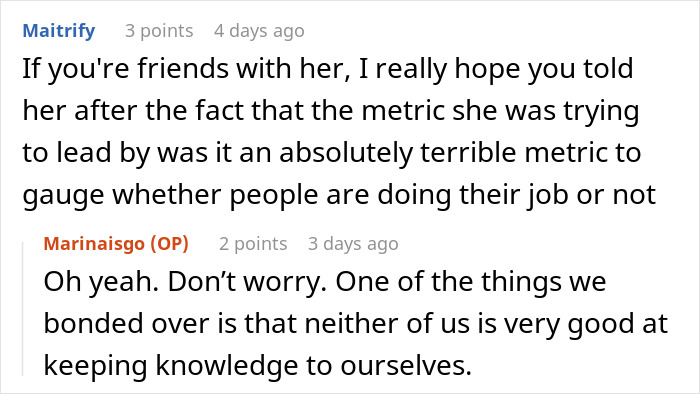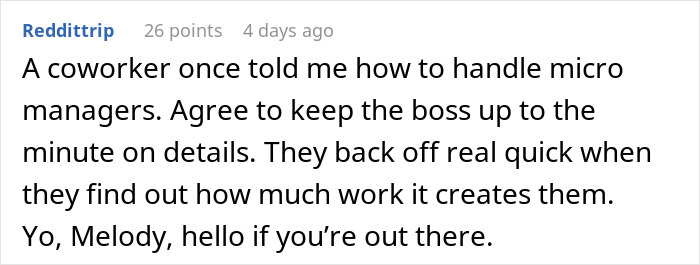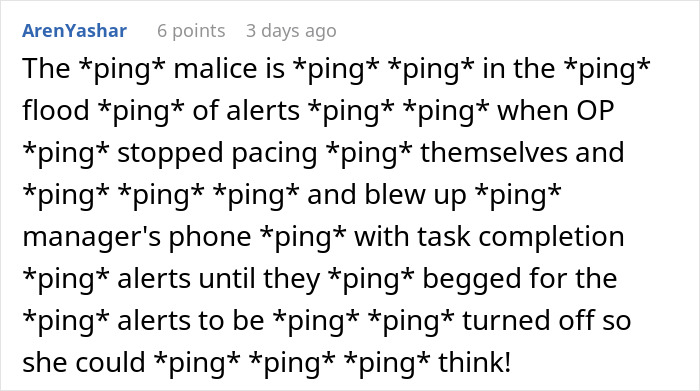Since companies pay their employees wages, in return, they feel entitled to make every penny count. This means ensuring workers spend their time productively instead of dealing with personal matters, especially now that more and more work is happening electronically and remotely.
When this new manager joined the team redditor u/Marinaisgo worked at, she immediately became suspicious of his work outside the office. He innocently offered a solution to squash her doubts, proving he was completing his tasks, which she later came to regret.
Scroll down to find the full story and a conversation with Jessica D. Winder, HR executive and founder of Hidden Gem Career Coaching, who kindly agreed to answer a few of our questions.
Since companies invest a lot of money in employees, they have to make sure that workers are using their time to their benefit

Image credits: Artem Podrez / Pexels (not the actual photo)
This new manager even used a tracker app that informed her when an employee finished a task
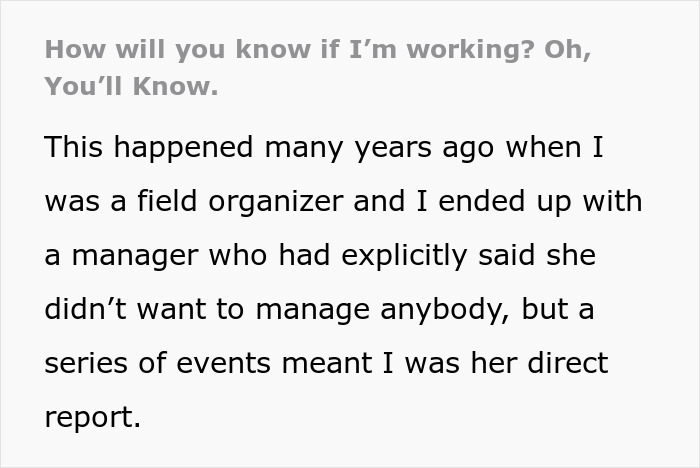
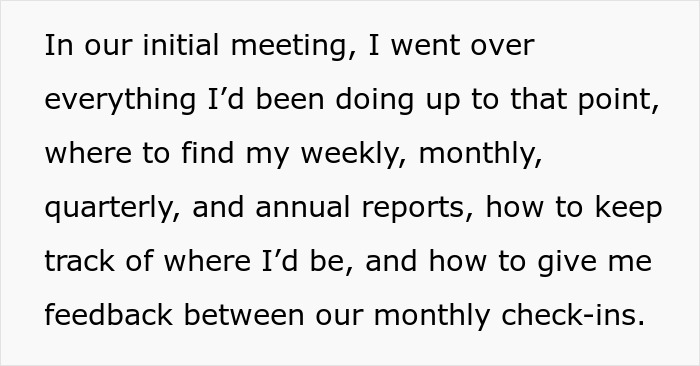
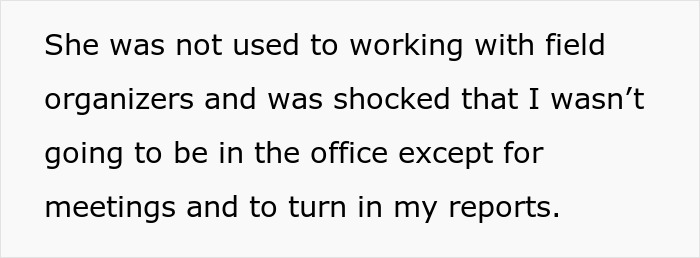
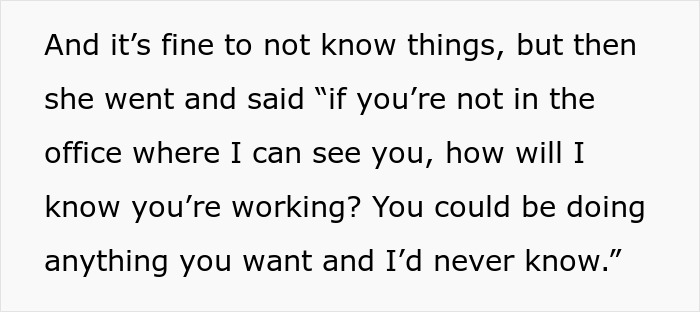

Image credits: Elina Fairytale / Pexels (not the actual photo)
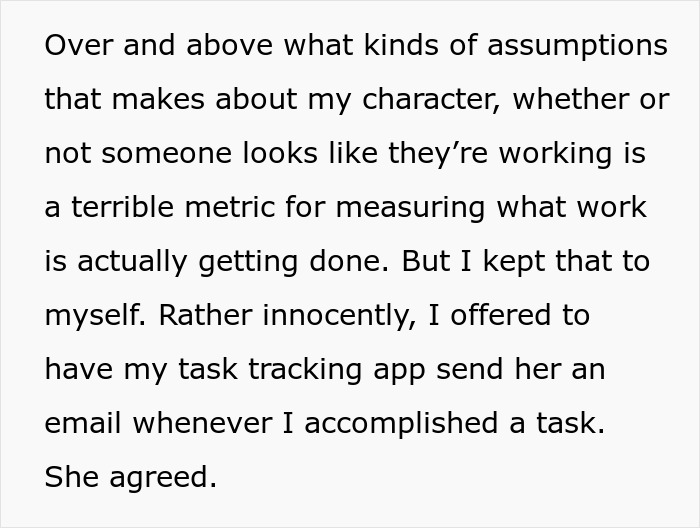
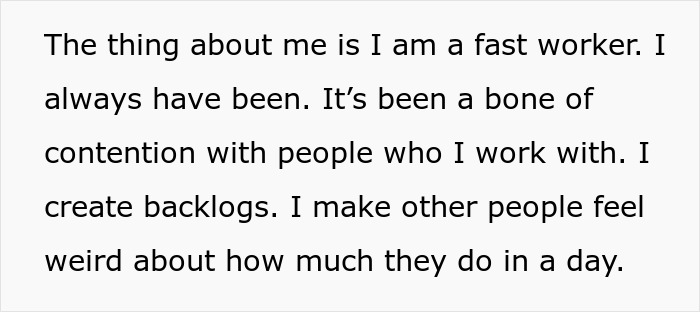
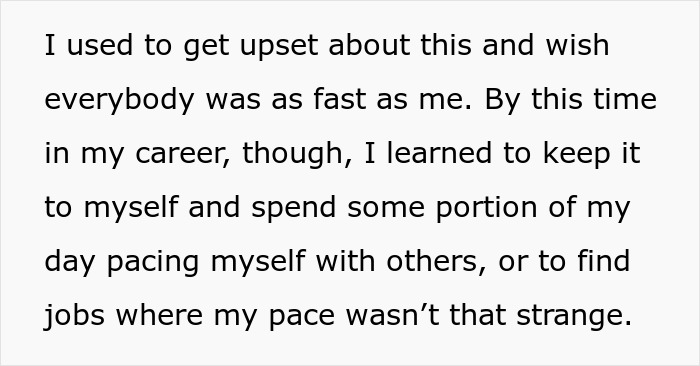
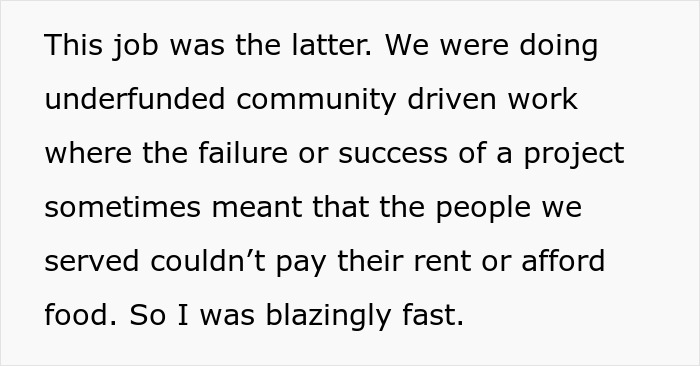

Image credits: Pavel Danilyuk / Pexels (not the actual photo)
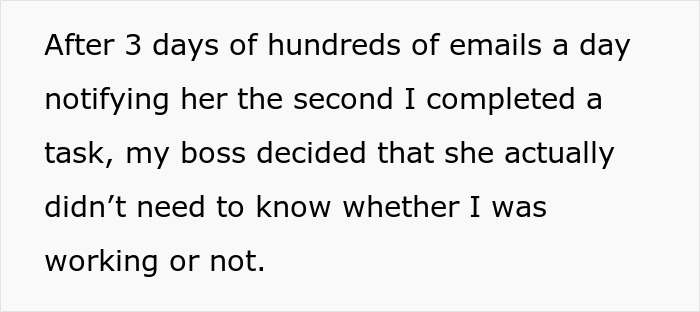
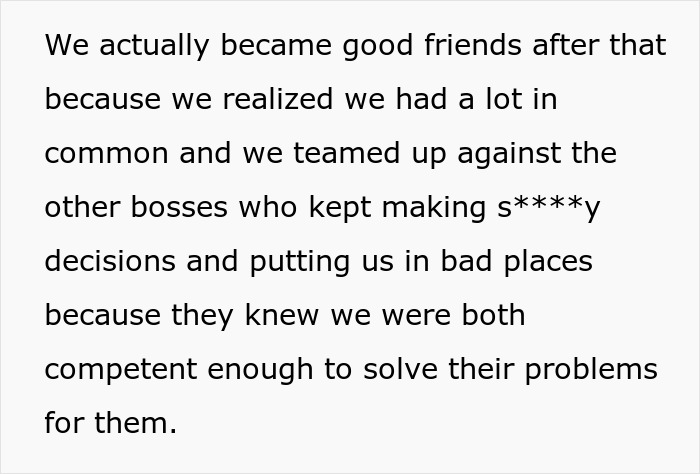

Image credits: Marinaisgo
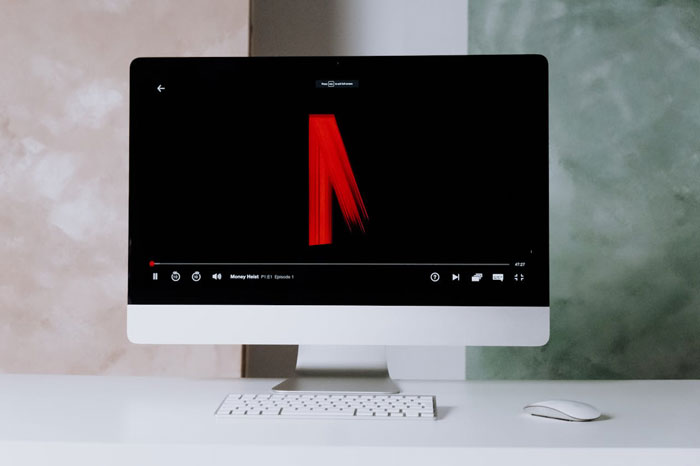
Image credits: cottonbro studio / Pexels (not the actual photo)
33.5% of employees admit to gaming on the clock, while 57% binge-watch TV shows
Jessica D. Winder, HR executive and founder of Hidden Gem Career Coaching, tells Bored Panda that the reason companies monitor employee activity is because they believe they need to play Big Brother and make sure people are actually working and not just binge-watching Netflix.
However, the worker performance monitoring that more and more firms are trying to put in place might be justified. Study after study shows that workers are spending less time on their actual job tasks. In 2016, researchers found that less than half of a workday is dedicated to productive work.
The rest of their time is usually occupied by ‘fake’ or ’busy work’ producing reports for management that no one is going to read, answering irrelevant emails, and attending fruitless meetings. Other distractions, like phones and social media, also eat up a lot of their workday. 33.5% of employees admit to gaming on the clock, while 57% binge-watch TV shows.
Even those who look busy and overwhelmed aren’t always producing actual work. Software company Slack found in 2023 that globally, 32% of employees appear to be occupied instead of completing productive work. This ‘phenomenon’ has its own term: performative work, and is the highest mostly in Asian countries, with India in the number one place.
Derek Laney Slack’s ‘technology evangelist’ explains that this is likely influenced by the way managers are measuring productivity. “Leaders are most likely to judge productivity based on visible activity instead of focusing on achieving outcomes,” he said. “This disconnect leads to wasted effort where employees try to show up well in front of their leaders.”

Image credits: nappy / Pexels (not the actual photo)
“There is an opportunity for companies to explore new and different ways of working”
Even though companies put a lot of effort into ensuring employees are productive, Winder says it’s not going to solve the problem. “Monitoring just makes people better at pretending to work. Instead of getting real stuff done, employees might just spend time figuring out how to look busy – like perfecting their “I’m super focused” face for the webcam. It’s like turning work into a bad reality TV show where everyone is acting for the cameras.”
Instead of monitoring their activity, most surveyed workers want to be assessed through key performance indicators, conversations with their managers, and the hours spent on specific types of work. “There is an opportunity for companies to explore new and different ways of working, such as … adopting asynchronous ways of working rather than meetings, to facilitate more effective collaboration at work,” Laney said.
According to Miro, a digital collaboration platform, 42% of employees are in favor of asynchronous work, which was very prevalent during the pandemic. Such work ethic allows employees to complete tasks without having to be in the same place at the same time, saving time from fruitless meetings.
To maintain or improve performance and job satisfaction without having to monitor employees’ activity Winder suggests trusting the people. “Set clear goals, give regular feedback, and create a work environment that doesn’t feel like a prison. Focus on what people actually achieve, not how many hours they’re logged in. And remember, a happy team is a productive team. Let folks balance their work and life – they’ll thank you with better work and fewer “technical issues” during Zoom calls.”
The author provided more information in the comments, while readers shared their opinions
